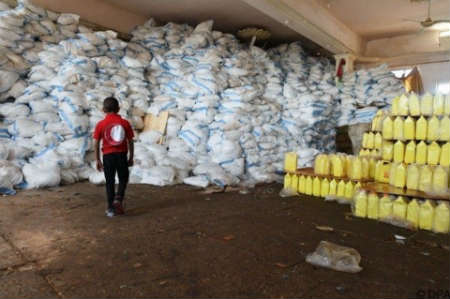In Syria, Germany is one of the biggest contributors of humanitarian assistance, pledging over 1 billion Euros at the last donors’ conference in Brussels in April 2018. With all pledges at this year’s conference amounting to 3.6 billion Euros, Germany is again among the biggest donors of the international community. Since the beginning of the crisis, Germany has made 4.5 billion Euros available in humanitarian assistance and seeks to continue its intensive support for the 13 million Syrians inside Syria in need of humanitarian aid. Compared to 720 million Euros of humanitarian aid in 2017, Germany’s pledges for 2018 mark a further increase. The majority of these funds are channelled through multilateral organisations, such as the United Nations, while the remainder goes directly to relief organisations. In addition to the supply of food and medical drugs and equipment, the focus lies on the protection of particularly vulnerable groups such as children, women and elderly people from ongoing acts of war and destruction. In addition to humanitarian assistance, Germany also seeks to advance a political solution. About a month ago Germany joined the Small Group consisting of the US, Britain, France, Saudi-Arabia and Jordan which is looking for a political solution to the Syrian crisis.
In Yemen, where 22 million people are dependent on humanitarian aid, the German Federal Foreign Office allocated 165 million Euros for humanitarian efforts in 2017 – a fivefold increase compared to the year before. The focus of Germany humanitarian assistance lies on the supply of food and water as well as health services. In 2018 Yemen will feature again among Germany’s priorities for humanitarian aid. Other cases where Germany is active are Iraq, which the German Foreign Office supported with 500 million Euros over the last three years, the Rohingyas crises, for which Germany allocated 22.8 million Euros in 2017, and the African continent, which Germany supported with 430 million Euros in 2017.

